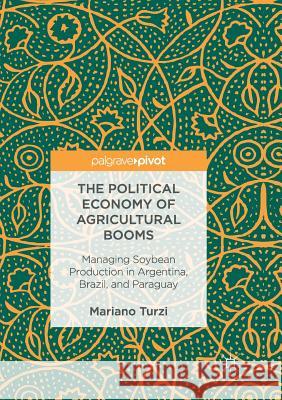The Political Economy of Agricultural Booms: Managing Soybean Production in Argentina, Brazil, and Paraguay » książka
topmenu
The Political Economy of Agricultural Booms: Managing Soybean Production in Argentina, Brazil, and Paraguay
ISBN-13: 9783319834047 / Angielski / Miękka / 2018 / 154 str.
The Political Economy of Agricultural Booms: Managing Soybean Production in Argentina, Brazil, and Paraguay
ISBN-13: 9783319834047 / Angielski / Miękka / 2018 / 154 str.
cena 241,50
(netto: 230,00 VAT: 5%)
Najniższa cena z 30 dni: 231,29
(netto: 230,00 VAT: 5%)
Najniższa cena z 30 dni: 231,29
Termin realizacji zamówienia:
ok. 22 dni roboczych
Bez gwarancji dostawy przed świętami
ok. 22 dni roboczych
Bez gwarancji dostawy przed świętami
Darmowa dostawa!
Kategorie BISAC:
Wydawca:
Palgrave MacMillan
Język:
Angielski
ISBN-13:
9783319834047
Rok wydania:
2018
Wydanie:
Softcover Repri
Ilość stron:
154
Waga:
0.21 kg
Wymiary:
21.01 x 14.81 x 0.94
Oprawa:
Miękka
Wolumenów:
01
Dodatkowe informacje:
Wydanie ilustrowane











